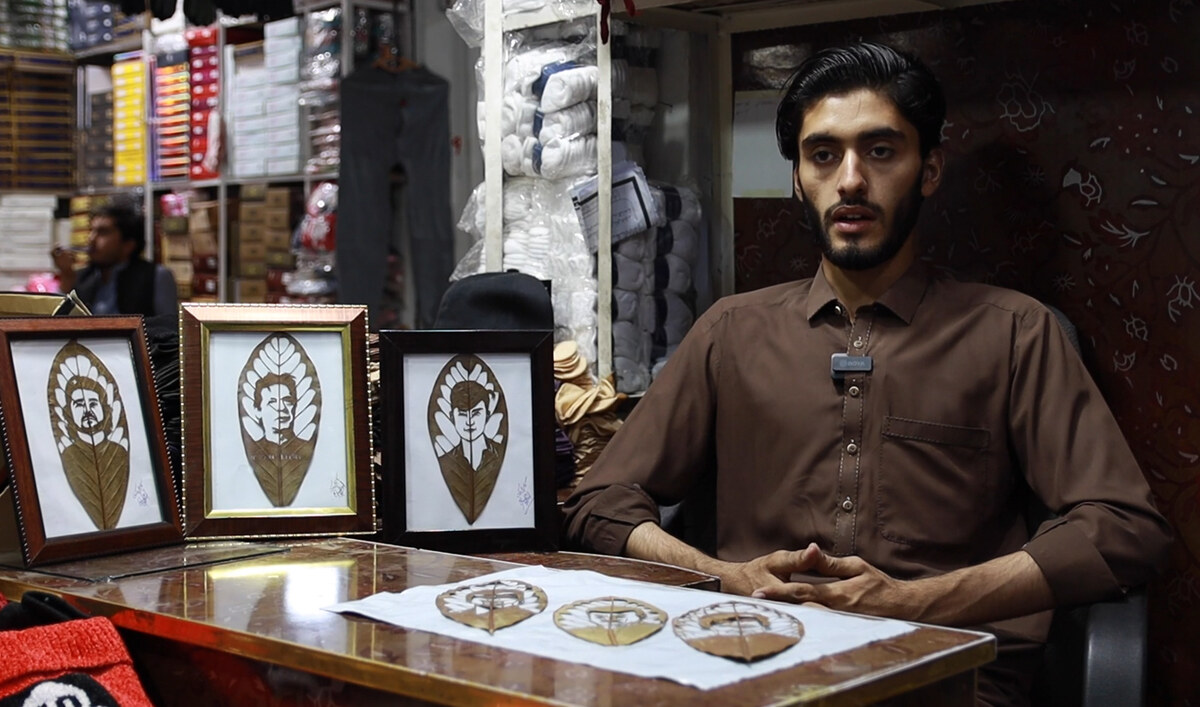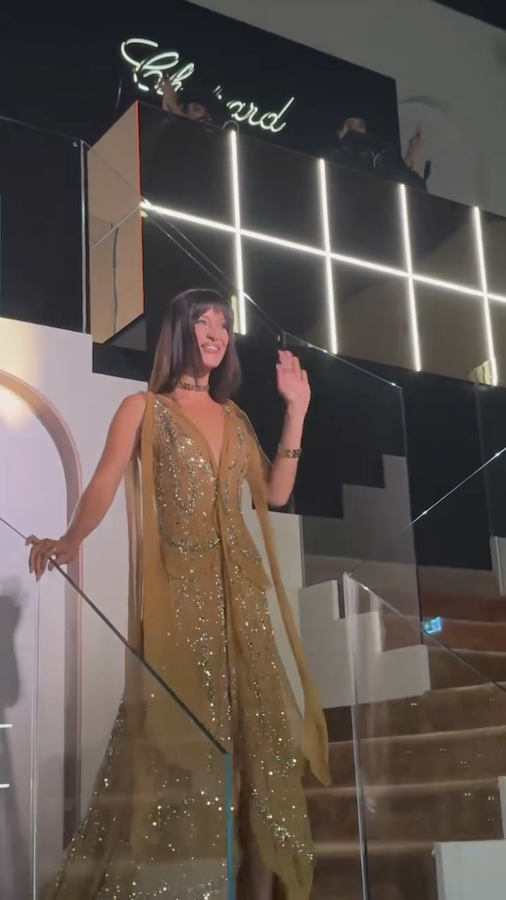DUBAI: Wes Ball, known for directing dystopic flicks including “Maze Runner” and “Ruin,” wasn’t fully on board when he was first approached to helm “Kingdom of the Planet of the Apes”, the latest instalment in the sci-fi franchise that has spawned 10 films.
“I was skeptical,” Ball told Arab News. “I’m a big fan of this franchise. I grew up on the original (1968) one. I love the previous three movies (the reboot series that began in 2011). What Andy Serkis did and what Matt Reeves did in those movies, they're distinct; they're incredible movies. And I was questioning whether there was a need for a follow up.
“I wasn't really into the idea until we figured out this concept that allowed us to be brave enough to go our own direction and not feel the need to be so tied to the previous movies,” he continued. “Of course, there's a lot of love and respect (for) the previous movies, but we wanted to do something new and fresh and original — have a reason to exist, and not just to do another one for the sake of it. So we tried really hard to come up with a story and a group of characters that felt new and different and would be a worthy addition to what's now been 10 movies over 35 years.”
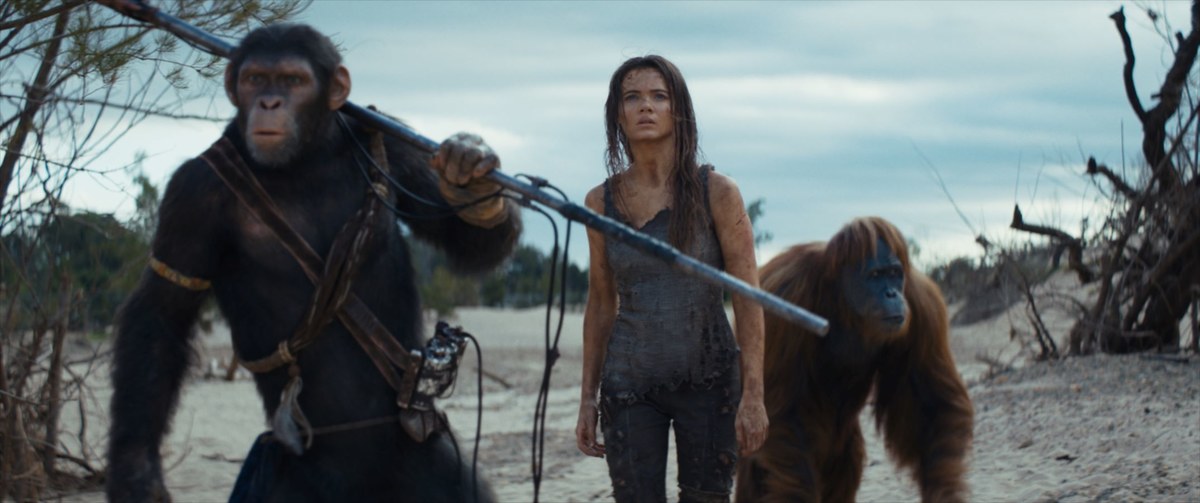
“Witcher” star Freya Allan plays Mae (centre). (Courtesy of 20th Century Studios)
“Kingdom” is intended as a sequel to 2017’s “War of the Planet of the Apes” — the third film in the rebooted series — but is set nearly 300 years after its events.
Over those three centuries, ape civilizations have grown and they have become the dominant species on Earth. Humans, meanwhile, have faded and become an “echo” of their ancestors, regressing into a more feral, primitive form.
Against this backdrop, “Kingdom” tells the coming-of-age story of a young ape called Noa (Owen Teague) as he goes up against the tyrannical ape leader Proximus Caesar (Kevin Durand), aided by a young woman named Mae (Freya Allan).
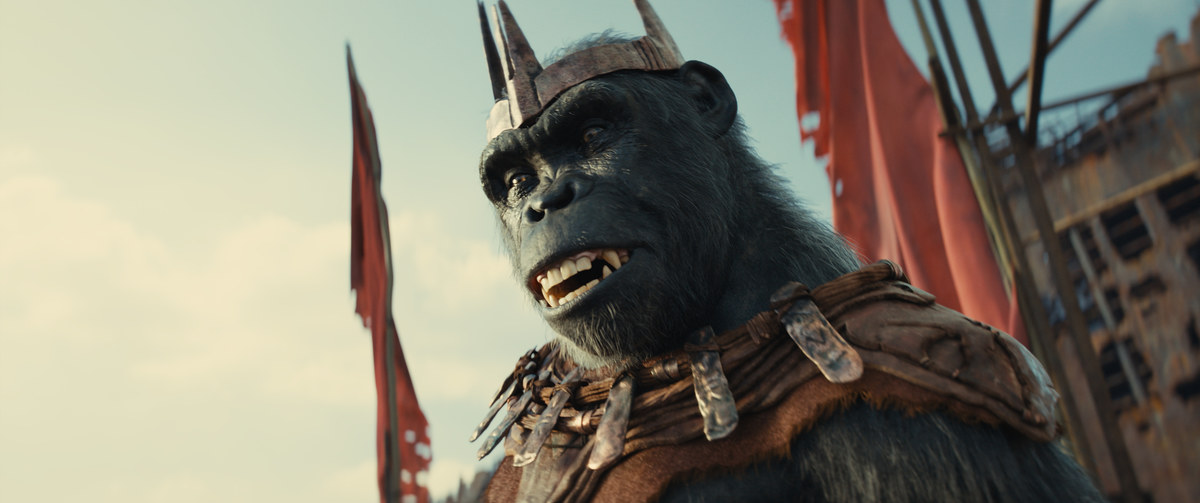
The tyrannical ape leader Proximus Caesar is played by Kevin Durand. (20th Century Studios)
Before filming commenced, the cast attended six weeks of ape school, spearheaded by movement coach Alain Gauthier. Teague also spent some time observing chimpanzees.
“I learned how much like an ape I am. I might be more ape than human,” Teague said. “One of the most fascinating things to me was how political they are, and how complicated their social hierarchy is; it's not entirely vertical, there's this kind of intermingling. Two apes will form a coalition and try to take down another, and the one who's in power will go and campaign. There's all these strategies they use to get where they want to be socially. And I had no idea that they could lie or deceive or backstab the way they do. It makes a lot of sense that we come from them.”
“Witcher” star Allan — who plays the only significant human role in the film — says her time on the sets of the fantasy Netflix show helped with some of the stunts for this movie.
“I have gained confidence from doing so much on ‘Witcher.’ And I've done dance in the past. I enjoy doing that physical stuff. I find it really exhilarating to do a stunt well. But there was stuff I did in this film that I haven't done in other things. There was some water stuff that was really fun to do. And just a lot of falling over. I was always bruised,” she said.
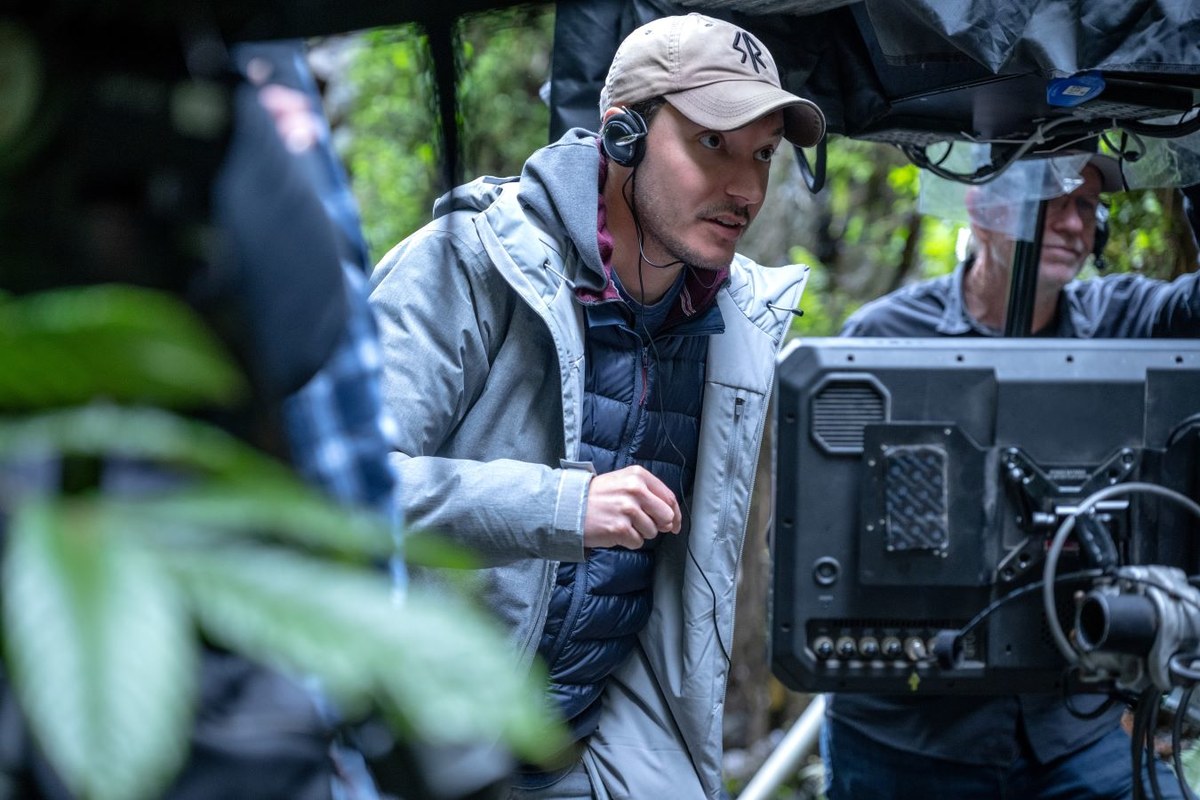
Filmmaker Wes Ball on the set of ‘Kingdom of the Planet of the Apes.’ (20th century Studios)
A film set centuries after the fall of human civilization is familiar territory for Ball, who directed all the “Maze Runner” films.
“I just kind of fall into these worlds for whatever reason,” he said. “But I didn’t come up with the world for ‘Maze Runner,’ it was in the books. I just had to implement and execute it. But that’s a world you don't want to go into: It's dirty. It's dangerous. Whereas this ‘Apes’ world… it's beautiful. It's nature reclaiming the Earth and it's becoming a new Eden in a way. I hope people don't use the word dystopian for this movie. I hope they use words like, ‘a lost world.’
“So much time has passed that all signs of humanity have almost been wiped away. I love the idea that it becomes a lovely world that you would like to explore,” he continued. “And the cool thing about it is, underneath all that beauty and tranquility, there's this haunting idea of the mistakes that mankind made.”






